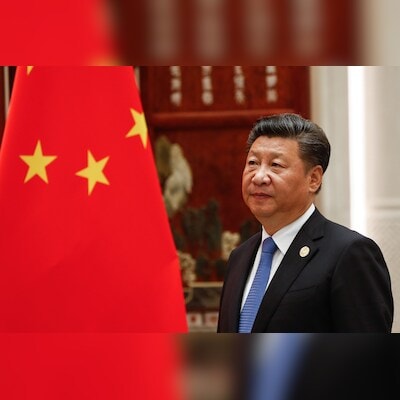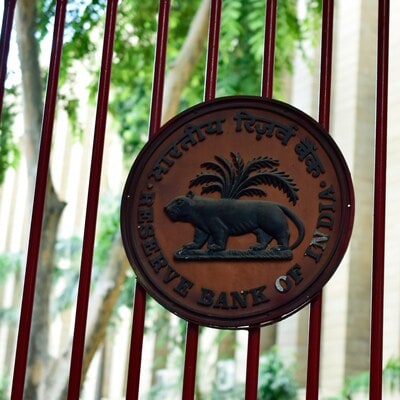)
(Photo: Photo: Shutterstock)
By Daniel Moss
China’s latest effort to shore up the economy and buttress markets is commendable — all the more so if the follow-up is resolute. In tough times, it’s vital policymakers get ahead of markets, or at least don’t allow themselves to be seen as constantly playing catch-up. Taking the initiative counts, but military metaphors only go so far. They can obscure as much as enlighten.
Click here to connect with us on WhatsApp
The package rolled out Tuesday was noteworthy in content and delivery. Markets were enthusiastic, at least for a day. Battlefield imagery was everywhere: A stimulus “blitz” had been unleashed. The measures, which included an interest-rate cut and steps to assist the stock market, amounted to a “barrage.” Cash handouts will be given to people in extreme poverty. And, of course, no policy shift would be complete without “bazooka.” That tag probably shouldn’t be used to bestow praise. It has a tumultuous history.
The individual GI’s anti-tank weapon from World War II has been used as a descriptor to hail responses as varied as the Bank of Japan ramping up quantitative easing a decade ago and Mario Draghi’s race to keep the eurozone intact. Understanding the B-word and some of its tangled deployment is useful for figuring what may come next, and why there is likely no single solution to China’s challenges.
One particularly unfortunate invocation is attached to a different era: The American subprime crisis of 2007-2009. While efforts to rescue the US and global economies are now praised, aspects of what transpired didn’t look so heroic at the time. There were certainly bad calls as well as breakthroughs, and Henry Paulson, US Treasury secretary under George W Bush, probably wishes he never heard of the M9A1 Rocket Launcher. To appreciate the context, it’s necessary to go back to the darkest weeks of 2008.
Worried about the stability of Freddie Mac and Fannie Mae, Mr Paulson went to Capitol Hill and sought the ability to seize the companies — if necessary. The firms operated under a government charter and accounted for almost half the US mortgage market. He told lawmakers that handing him the authority to rescue them would be reassuring and keep private capital flowing. “If you have a bazooka in your pocket and people know it, you probably won’t have to use it,” Mr Paulson told senators in July. Congress soon passed the law.
It wasn’t enough. Shares in Fannie and Freddie tumbled and, in September, officials were forced to nationalise them. What Mr Paulson was so convinced wouldn’t be needed was, in fact, required. There’s even an argument that rather than bolster confidence in the two companies, the bazooka undermined it by raising the threat of action by the state. It was a rough period: On September 15, Lehman Brothers Holdings Inc. filed for bankruptcy.
Despite the Freddie-Fannie debacle, the bazooka refused to be idled. The analogy evolved to mean you blast everything you have at a problem with as big a weapon as you have. You assume, or hope, that markets will recognise that it’s futile to fight beyond a certain point. Within days of Lehman’s failure, American International Group Inc got an emergency lifeline from the Fed. Officials lobbied Congress for the broad $700 billion financial rescue that became known as the Troubled Asset Relief Program. It was originally devised to facilitate the purchase of dodgy assets from banks, but ended up being a kind of all-purpose fund. The lesson is to keep improvising. Conducting stress tests on banks in early 2009 was an idea that Tim Geithner, who succeeded Mr Paulson, hatched on a Mexican beach during a short break.
By the time the results were released in May 2009, markets had begun to rally and banks returned to profit. The economy soon started growing again and the expansion became the longest on record. Circumstances can look miserable in the moment, with reason, but get a more flattering assessment over time.
With an imagined track record like that, it’s no wonder the bazooka keeps getting pulled out as a metaphor whenever a large gun is needed. But by firing everything at anything, it doesn’t really mean that much anymore. Almost as cliché as the bazooka is the follow-on phrase: It isn’t big enough.
Chinese officials truly face a lot of incoming fire: A disappointing recovery from the pandemic, the threat of deflation and the continuing slump in the property industry. China is improvising, too, with local authorities encouraged to buy empty houses and officials floating the idea of a market stabilisation fund. Beijing is also considering the injection of $142 billion into the biggest state banks. It has certainly been an impressive week for policy mobilisation. If one thing doesn’t work, try another.
In a tough spot, thinking creatively — and big — can be advantageous. There’s a lot to be said for marshalling national power in moments of acute need. But, please, let’s give the bazooka a break.
First Published: Sep 27 2024 | 11:53 PM IST












Leave a Reply